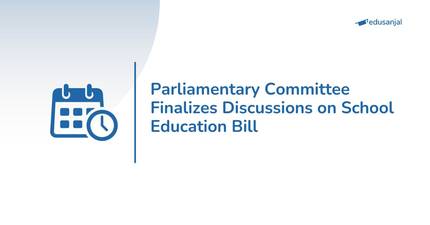Kathmandu, [14 May 2025] — The subcommittee under the House of Representatives’ Education, Health, and Information Technology Committee has reached a consensus on the transformative School Education Bill, introducing a province-wide mechanism for selecting school principals, mandatory student profiles, and provisions to transition private schools into educational trusts.
Province-Wide Principal Selection Process
Under the bill, school principals will now be selected from a pool of teachers across the entire province, marking a shift from the previous system limited to local-level candidates. When a principal retires or vacates their post, the local government must notify the Provincial Teacher Service Commission, which will provide a list of qualified teachers specializing in the same subject as the outgoing principal.
For instance, if an English teacher serving as principal departs, the commission will supply a list of English teachers province-wide.
A local education expert committee will then select the principal from this list. The appointed principal will serve a five-year term, with the local government retaining the authority to renew or replace them based on performance.
“This ensures capable and qualified individuals are chosen, breaking away from narrow local pools that risked political interference,” said a subcommittee MP.
Teaching vs. Administrative Roles Debated
While MPs initially pushed for principals to hold dedicated administrative roles without teaching duties, the government rejected the proposal, citing financial unsustainability given Nepal’s 27,000 schools. Consequently, principals will continue to shoulder teaching responsibilities. However, the bill allows local governments to appoint principals exclusively for administrative roles, with autonomy over their benefits and service terms.
“Our proposal for purely managerial principals was declined, but flexibility remains at the local level,” an MP explained.
Student Profiles and Teacher Accountability
To enhance accountability, the bill mandates teachers to maintain individual student profiles tracking academic progress and weaknesses, akin to private school practices. “Just as doctors keep patient records, teachers must document student growth,” said CPN (UML) MP Chhabilal Bishwakarma, who coordinated the subcommittee. These profiles will also influence teacher promotions and performance evaluations.
Push to Convert Private Schools to Trusts
The bill requires all new schools to operate as educational trusts, while existing privately-run company schools face pressure to transition. Most MPs advocate a 15-year deadline for this shift, though disagreements persist. “Top leaders resist change, but we insist on a trust-based system to prioritize education over profit,” another MP noted. The issue remains unresolved in the bill’s final draft.
Education Categories Defined
The legislation categorizes basic education as Early Childhood Development (ECD) through grade 8 and secondary education as grades 9–12. Principals for basic schools must be selected from permanent basic education teachers, while secondary schools will draw from secondary-level educators.
Next Steps
With the subcommittee’s revisions nearly complete, the bill will proceed to the full House for approval. The proposed reforms aim to standardize leadership quality, reduce political influence in appointments, and align Nepal’s education system with accountability-driven frameworks.












